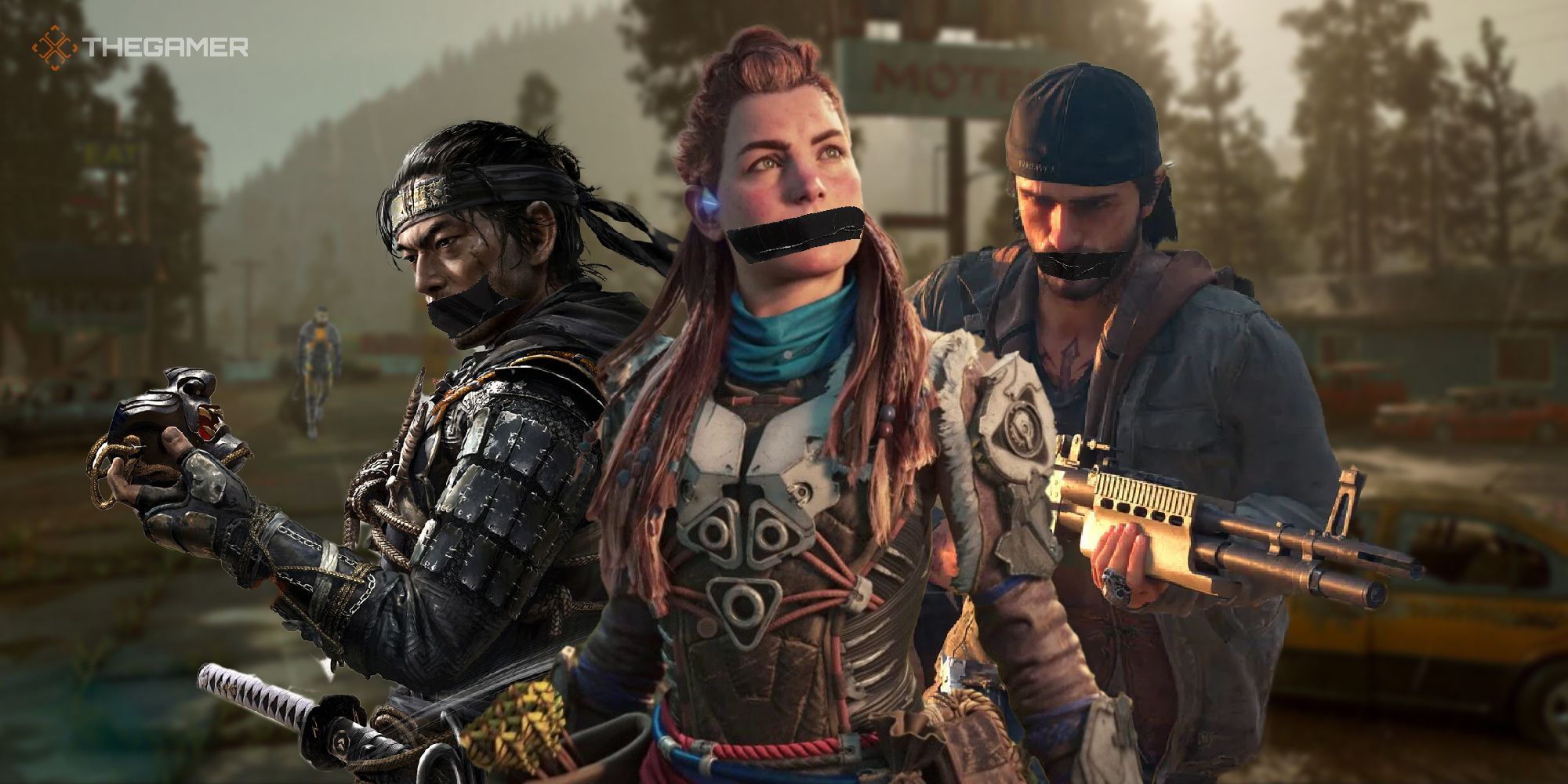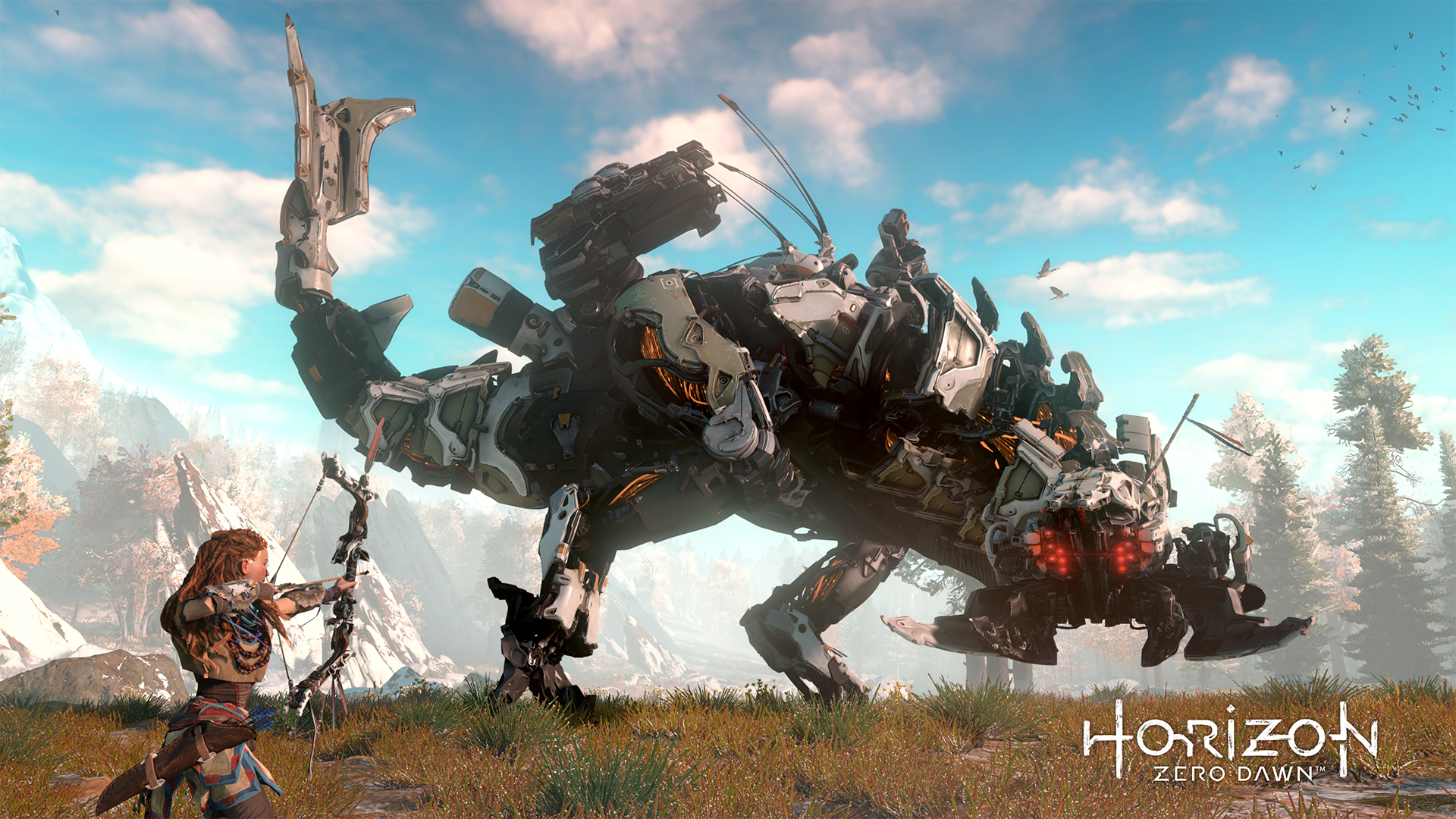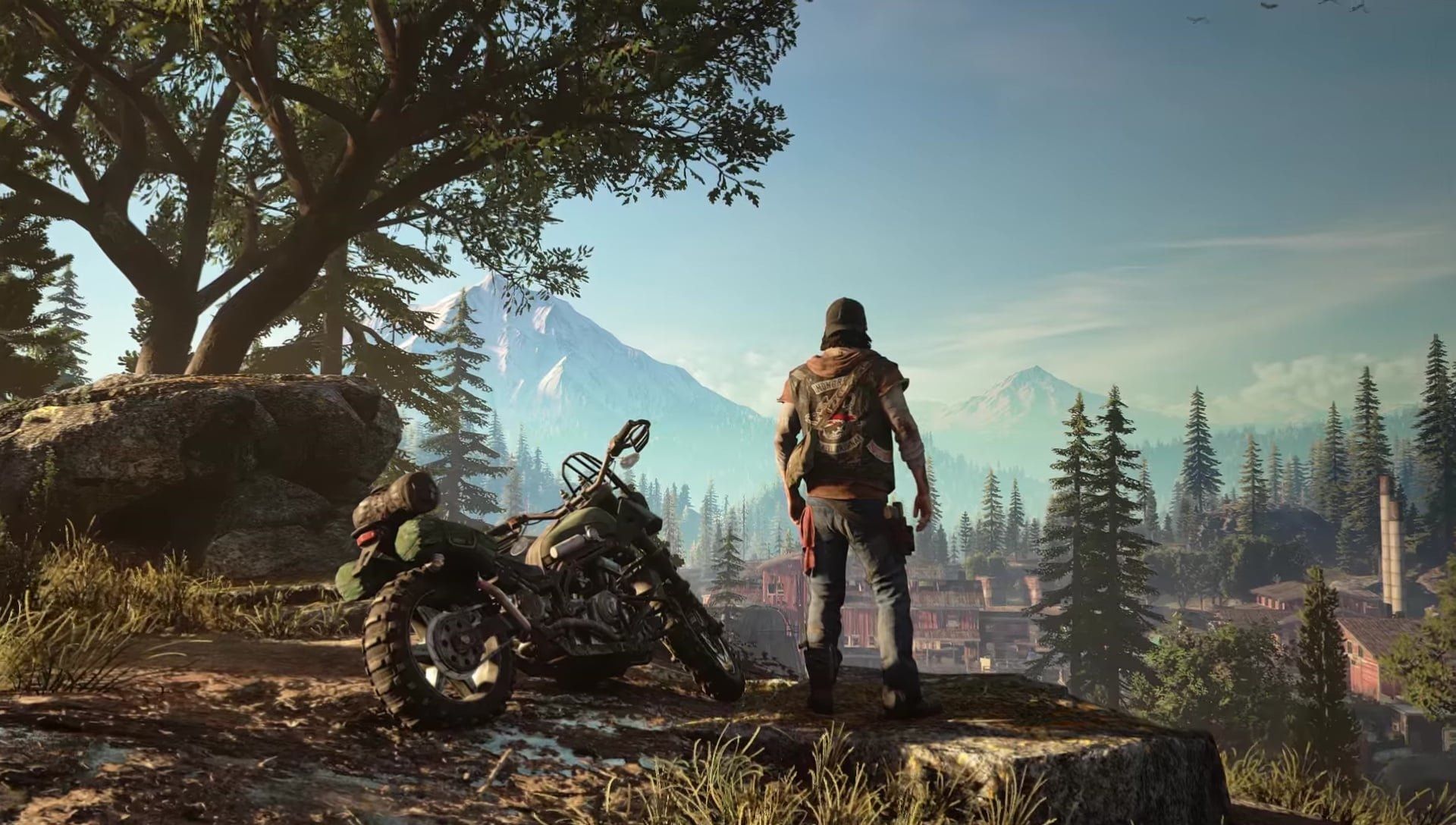After years of bouncing off Horizon Zero Dawn it has finally sunk its teeth into me. While I still have notable issues with its tribal appropriation and needless mounts, Guerrilla Games’ pair of open world blockbusters have been taking up the majority of my gaming time in recent weeks. Exploring its vision of the apocalypse while doing battle with all manner of robotic dinosaurs felt silly at first, but I’ve put aside small foibles to fall in love with what feels like one of the most original exclusive properties in recent memory.
But there’s one thing that really bugs me, and it’s persisted ever since pre-release gameplay of Horizon was shown off to press and public alike - Aloy talks too much. She has to notify the player whenever she stumbles across a herd of animals, nearby settlement, or even berries she can pick to use in later skirmishes. I understand why she must be so vocal in order to guide players and ensure they keep moving on the right path, but constantly speaking up when nobody else is around means that Aloy can only ever be talking to herself in situations like this, or quite clearly ruining our immersion by trying to avoid making it seem like she’s addressing the player directly.
Aloy’s over-exuberant speech is a direct compromise of open world games appealing to a mass audience. On the surface, Horizon’s world is filled with so many potential activities and quests that it’s easy for newcomers to get lost, or be unsure where to go next. Having a heroine who isn’t afraid to speak up about the next story beat or encourage us to explore an area more thoroughly before moving onward is clearly important. Even though it has a place, that doesn’t stop it from hindering immersion and making it clear at all times that we’re just playing a video game. I mean, we are, but that’s besides the point.
There is no option to lower the frequency of such comments, meaning that even 20+ hours into the campaign you’ll hear Aloy talk about crafting arrows and visiting merchants even though we’re fully aware these mechanics exist. She has no reason to say these things, meaning she is addressing the player in a way that doesn’t break the fourth wall, but it goes just far enough to feel obnoxious. Like please, I don’t need my hand held. But Guerrilla is far from the only guilty party when it comes to open world protagonists who love a good natter.
Ghost of Tsushima’s Jin Sakai is equally talkative, which is even weirder given he’s a stoic samurai warrior silently abiding by a code of honour. Aloy is an outcast who is seeing her world for the first time so at least her enthusiasm makes sense. Jin has spent his entire life on Tsushima Island, but still reacts to new locations and discoveries like they’re some sort of unknown wonder. They shouldn’t be, and if anything it would be fascinating to have prior knowledge possessed by a protagonist actually play into how we discover a virtual world. Tsushima could have done such a thing, but it throws it all away to repeat the same mistakes as Horizon. Now these are far from deal breaking problems, they’re just a little weird.
Days Gone is the worst offender, partly because its protagonist is so annoying. Deacon St John is a hardcore biker dude who would definitely call me a slur if he met me in a Tesco car park, and he also loves mumbling to himself like some sort of otherworldly alien whenever anything happens in the game’s unfolding zombie apocalypse. He’ll be hiding in a bush next to a friendly litter of kittens and hyperventilate himself into a panic attack before hurling a grenade into the fray. Jin Sakai and Aloy are both compelling characters, whereas Deacon is just an angry biker man trying to find his wife who is definitely dead, we promise. No way she is coming back in a third act twist. When he talks about his motorbike or starts freaking out about nearby threats it just gets on your nerves, or leans into unintentional hilarity given how much he overreacts to anything and everything.
I see the value in silent protagonists and almost prefer them in many cases, but there is a definite balancing act to be found in putting us in the shoes of a spoken hero who makes their place in the world known without shattering immersion. Alyx Vance from the most recent Half-Life title is arguably the best example, partly because the medium of VR lends itself far more to a spoken protagonist given we often embody their every move and action from a first-person perspective. It’s more natural, and the unfolding narrative in Alyx and accompanying world building is so beautifully executed that Valve ensures that each line of dialogue coming from her mouth feels like it belongs. Horizon, Days Gone, and Ghost of Tushima aren’t offered such a privilege, and it’s sad knowing protagonists who love to throw a vocal, immersion shattering hint our way aren’t going anywhere so we best get used to it.



